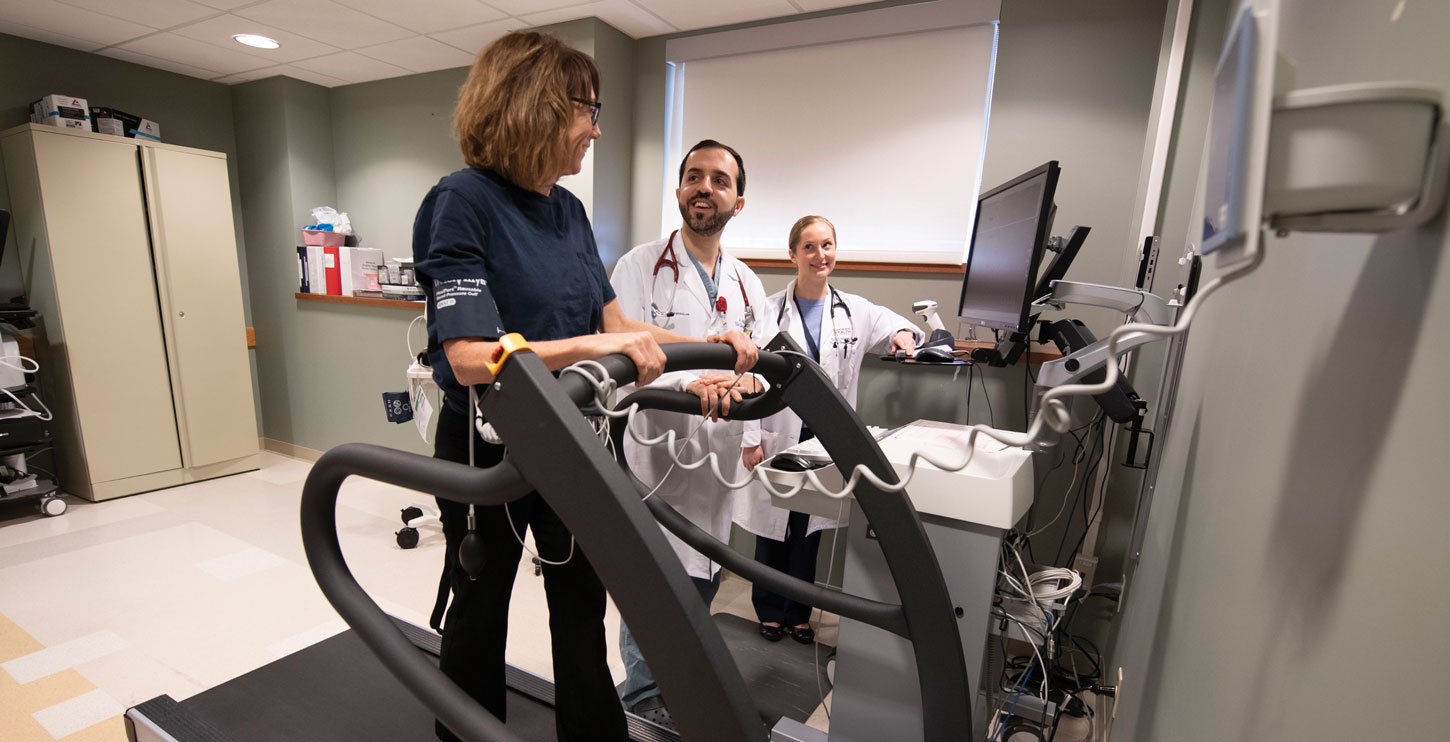Screening & Diagnostics
Center for Heart Health

Comprehensive Diagnostics
Our team of cardiologists, nurses, cardiovascular technicians and other technical and clinical staff work together to give you the most comprehensive and accurate diagnostic information using non-invasive cardiac testing, cardiac ultrasound, stress testing and state-of-the-art minimally invasive cardiac and endovascular interventions.
Cardiac Catheterization and Angiography
The multi-disciplinary team in our Cardiovascular Interventional Suite performs minimally-invasive procedures on an elective, or planned, basis or emergently on a 24/7 basis.
Cardiac
Cardiac catheterization is used to perform many tests to diagnose coronary artery disease. It can be used to evaluate the chambers of your heart, your heart valves and your coronary arteries.
Our interventional cardiologists also are adept at using the transradial approach, performing the procedure through radial artery access in your forearm.
Angiography
- Peripheral Angiography to visualize any narrowing or disease in an artery or vein.
- Fistulagram to look for abnormalities in dialysis patients.
Echocardiography Lab
In our Echocardiography Lab, we stay at the forefront of cardiac ultrasound to give you comprehensive evaluations and the most up-to-date techniques and technology.
Our procedures include:
- 2D and 3D Transthoracic Echocardiography
- 2D and 3D Transesophageal Echocardiography
- Stress Echocardiography
- Dobutamine Stress Echocardiography
- Contrast Echocardiography
- Fetal and Pediatric Echocardiography in conjunction with CHaD (Children's Hospital at Dartmouth).
Monitoring exams, echocardiograms and stress tests
Our Cardiovascular Care Center’s non-invasive testing includes lectrocardiograms, 24-hour Holter Monitoring, echocardiograms and various types of stress testing.
Electrocardiogram
An Electrocardiogram (EKG or ECG) tests your heart’s electrical activity. The test takes about 20 minutes and no special preparation is needed.
Holter Monitor
A Holter Monitor is a machine that continuously records your heart rhythms during a 24-48 hour period of normal activity. The test takes about 20 minutes and no special preparation is needed.
30-Day Event Monitor
The Event Monitor lets you record your irregular heartbeat when you feel it by simply pressing button over a 30-day period.
Echocardiogram
Echocardiogram (ECHO) uses sound waves to create a moving picture of your heart. The test takes about 45-60 minutes and no special preparation is needed.
Stress Tests
Exercise stress tests and Stress Echo also may help identify and diagnose heart disease. You will walk on the treadmill for approximately three to ten minutes.
- During an exercise stress test a cardiovascular technician and a cardiologist or nurse practitioner will monitor your blood pressure, heart rate and electrocardiogram.
- An imaging stress test, also called a Nuclear or Sestamibi Stress Test, uses a radioactive substance to show the blood flow to the heart muscle.
Dobutamine (Chemical) Stress Echo
Instead of walking on a treadmill, you are given a drug called Dobutamine through an IV line that will make your heart work harder.
Sestamibi (Nuclear) Stress Tests
This stress test shows how well blood flows into your heart muscle, both at rest and during activity. You will be in the Cardiovascular Care Center for three to four hours. During that time, you’ll walk on the treadmill approximately three to 10 minutes.
Sestamibi is a nuclear isotope that improves the diagnostic accuracy of a stress test and is administered by IV.